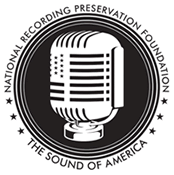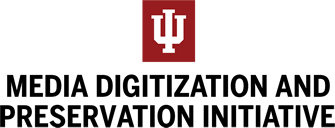Orson Welles Radio Programs

Orson Welles hosting the Jack Benny Program, Orson meets H. G. Wells, the 5th War Loan Drive, Pan-American Day, political conventions, etc.
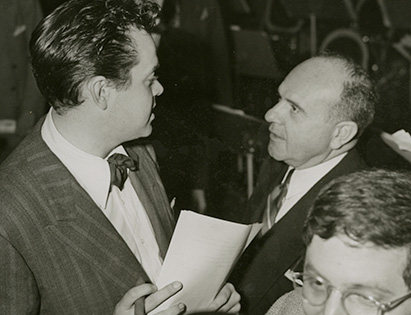
(1945) A short-lived series of dramatic adaptions, similar to Mercury Theatre on the Air, but with thirty-minute episodes broadcast with a live studio audience. Sponsored by Cresta Blanca wine.
Generally considered not among Welles's best work on radio, this series was hampered by both its half-hour length and the ...
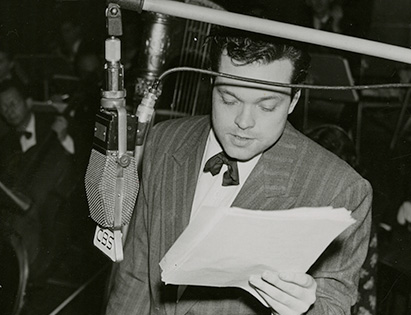
A variety program that mixed comedy and guest stars, broadcast before a live studio audience. Sponsored by Mobil Oil.
Welles produced radio variety programs, which he often described as "almanacs," several times in his career. His show for Lady Esther Cosmetics was quite tame, compared with the broad comedy, ...
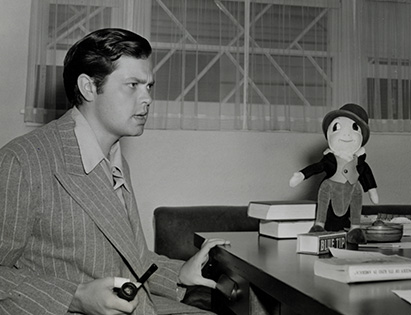
A variety program featuring short dramatic pieces, poetry, and comedy, sponsored by Lady Esther Cosmetics.
Welles took a break from radio work while making his film Citizen Kane, which premiered in May of 1941 to critical success and lackluster financial returns. In September 1941, Orson Welles began producing this ...
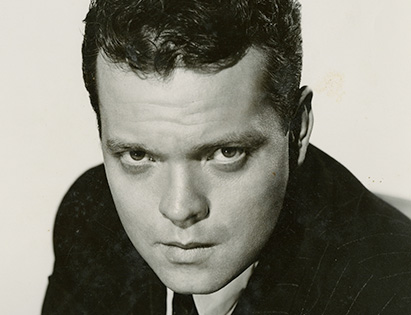
(1944-1945) These episodes were created during December 1944 and January 1945, but were never broadcast. Welles was frustrated with the 15-minute format, but used it again for his Commentaries that were broadcast starting in September 1945.
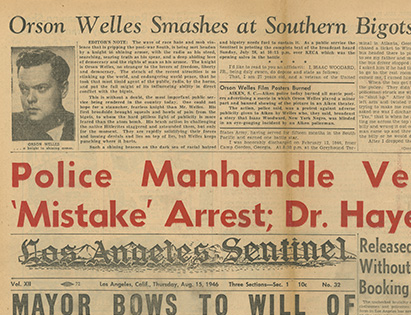
(1945) Fifteen-minute radio editorials, news, and political commentary. Sponsored by Lear Radios. ABC.
During World War II, Welles often expressed his policital and social views on the air, supporting the Democratic Party or the war-effort in general. From January to June 1945, the New York Post syndicated a ...
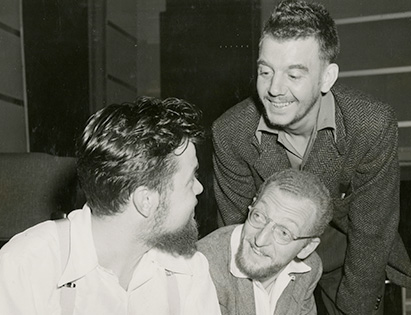
(September- December 1938) First Person Singular under a new name. One-hour adaptions of literary works, including Hell on Ice and The War of the Worlds.
CBS was well pleased with the first set of Orson Welles productions, and the company engaged Welles and his troupe for another set of broadcast ...
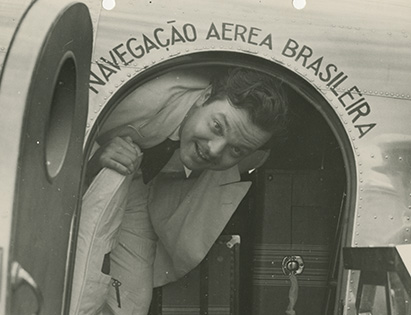
(1942) This program sought to foster understanding between North America and Central and South America, another part of Welles’s war efforts. Sponsored by the U. S. Office of the Coordinator of Inter-American Affairs. Fifteen-minute episodes.
Welles embarked on producing Hello Americans soon after returning ...
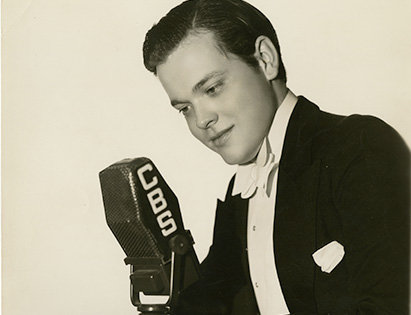
(July – September 1938) The first radio series for which Welles had full creative control. One-hour adaptions of literary works, including Dracula and The Thiry-Nine Steps.
Before Orson Welles created his own radio series, he frequently performed on the radio in series such as The March of Time and ...
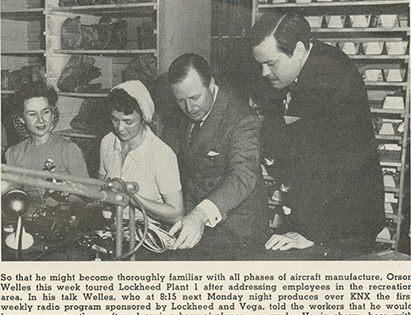
Ceiling Unlimited (1942) A series focusing on aviation, both its history and its role in the war effort, sponsored by Lockheed and Vega Aircraft Corporations. Fifteen-minute espisodes. CBS.
Officially, a bad back and flat feet prevented Orson Welles from serving in World War II. Unofficially, he was not interested in ...
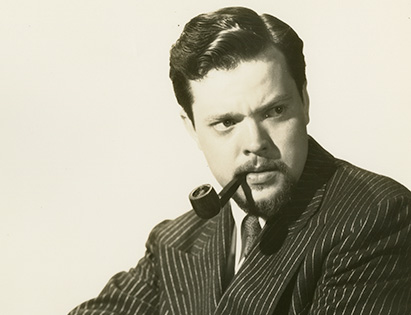
(December 1938 – March 1940 ) Mercury Theatre on the Air now sponsored by the Campbell Soup Company. One-hour adaptions of literary works, including The Count of Monte Cristo and Rebecca.
The Mercury Theatre on the Air gained a sponsor in the Campbell Soup Company, and changed its name to the ...
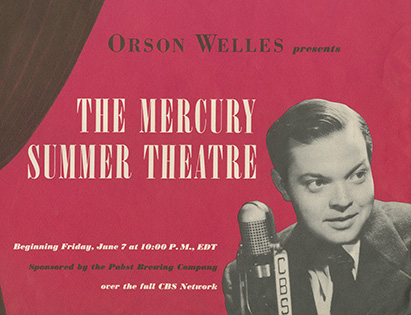
(1946) A short-lived series of dramatic adaptions, similar to Mercury Theatre on the Air, but with thirty-minute episodes. Sponsored by Pabst Blue Ribbon. CBS.
Welles produced this series while working on a stage production of Around the World in 80 Days and waiting for the opportunity to take on another ...

